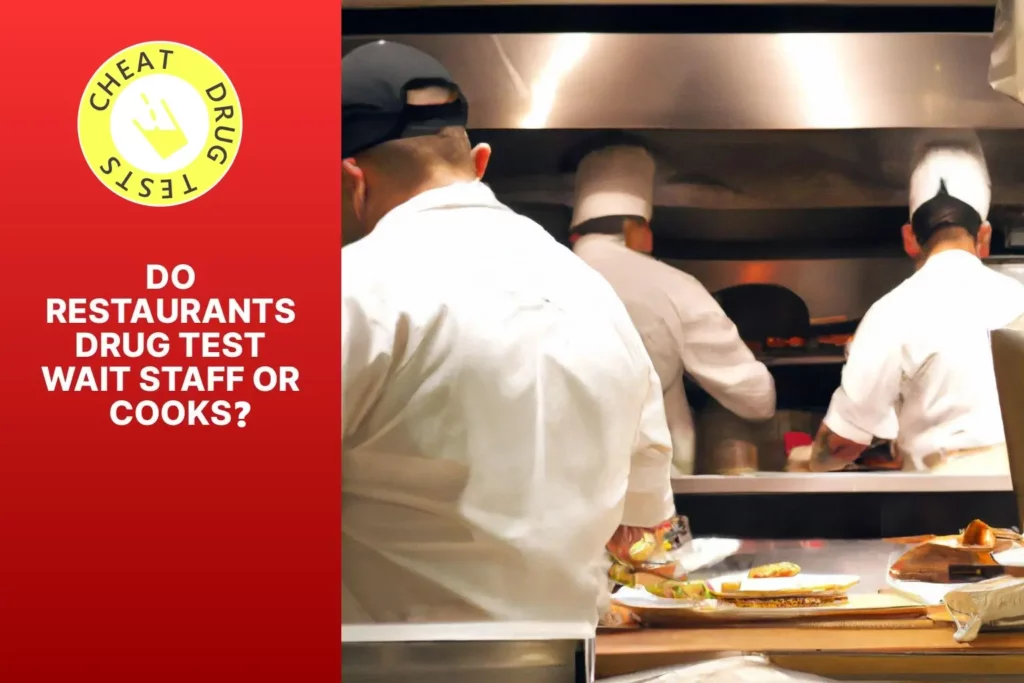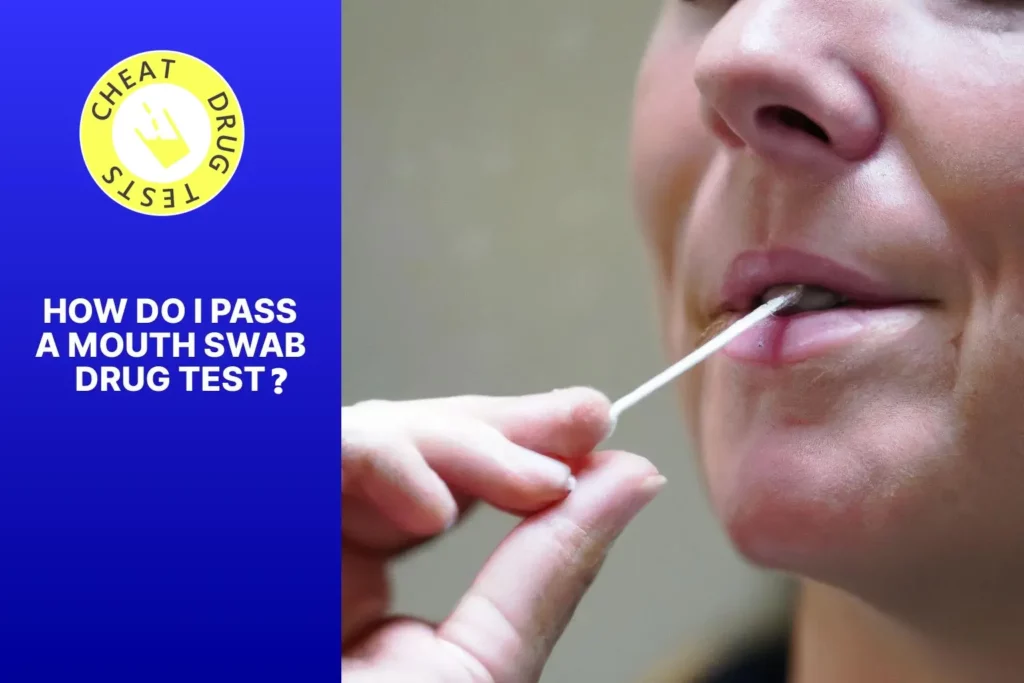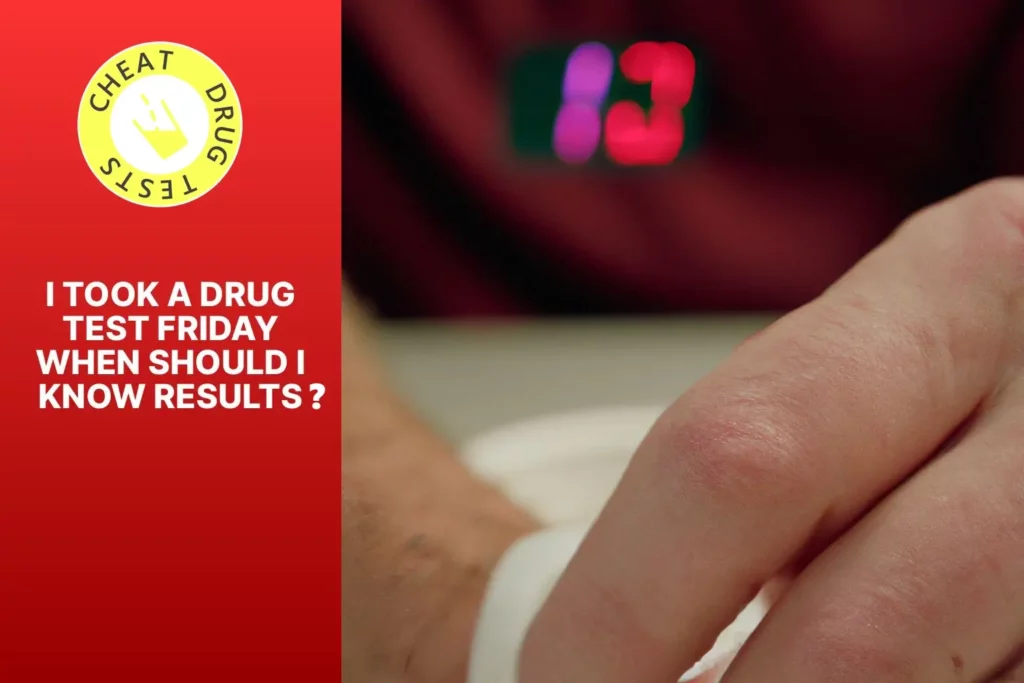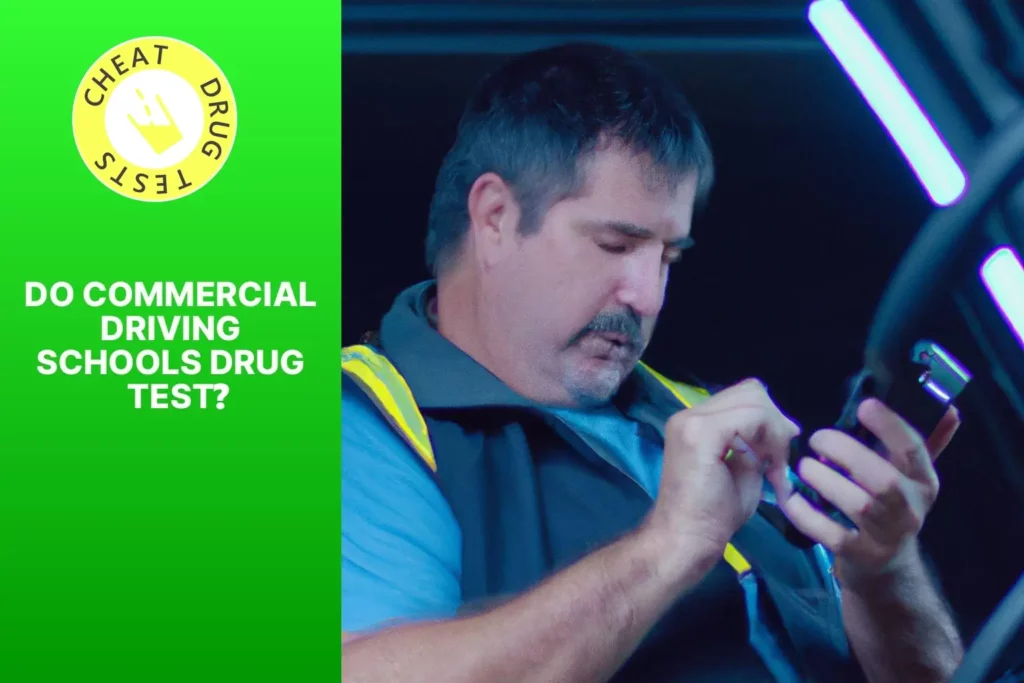Restaurants often need their staff to take a drug test before they can be employed. This usually involves a urine test, which checks for drugs or medication that could prevent someone from doing their job well. As a urologist, I can say how important it is to have drug testing for restaurants.
Drug tests are essential to keep employees and customers safe. This way, restaurants can make sure no one is under the influence of drugs or alcohol and avoid accidents. It also helps maintain a professional work environment.
Though it’s not enjoyable to talk about, understanding why drug tests are necessary in restaurants is important. In the past, there have been situations where employees, high on drugs, have caused serious harm. This led to stricter rules about pre-employment drug tests.
Importance of pre-employment drug screenings in the restaurant industry
Pre-employment drug screenings are essential in the restaurant industry. Keeping it safe and healthy for employees and customers is top priority. By conducting these tests, restaurant owners can spot potential drug users and prevent any risks.
Cleanliness is key in the restaurant business, where food safety is a must. Drug use can reduce cognitive abilities, leading to poorer concentration and decision making. This puts the quality of service and the safety of the establishment at risk.
Among employees, drug use can cause issues with team dynamics. This includes more absenteeism, lower productivity, and lower morale. Pre-employment drug screenings create trustworthiness and responsibility among workers.
Moreover, screenings can help stop problematic drug users applying for restaurant positions. Knowing they will be tested will likely put off those who abuse substances from seeking work in this field. This helps make sure only reliable and trustworthy people get hired.
From my experiences as a urologist, I’ve seen the effects of drug use on someone’s health. One such case that stands out was of a chef who tested positive during pre-employment screening, but said it was false due to prescribed medication. After investigating and talking to other medical professionals, it was revealed he was abusing drugs.
This case proves how important pre-employment drug screenings are to spot possible risks – not just to the individual, but to those around them. We must continue to push for thorough screenings in industries where public safety is at risk.
Current practices of drug testing in restaurants
Drug testing in restaurants is a must. It helps to keep the environment drug-free and protect customers and employees from harm.
Drug testing procedures can differ from one place to another. Usually, pre-employment drug screening is conducted for all new hires. This includes both wait staff and cooks.
Let’s take a look at a table outlining the drug-testing methods used in restaurants:
| Drug Testing Methods | Wait Staff | Cooks |
|---|---|---|
| Urine Test | Yes | Yes |
| Hair Follicle Test | No | Yes |
| Saliva Test | Yes | No |
| Blood Test | No | Yes |
Urine tests are normally done for both wait staff and cooks. This method shows recent drug use and can give accurate results. Hair follicle tests are not often used for wait staff. But, they may be needed for cooks due to the risk of workplace accidents.
Saliva tests can also be used. They can find recent drug use but have a shorter detection period compared to urine tests. Blood tests may also be used to get a more comprehensive analysis.
The U.S. National Library of Medicine states that 48.2% of employees in accommodation and food services, including restaurants, tested positive for illicit drug use in 2019.
Arguments for and against drug testing in the restaurant industry
Drug testing in the restaurant industry is a debated topic. While some say it’s important for safety, others believe it violates privacy rights.
Supporters argue it keeps workplaces safe, enhances customer satisfaction, meets legal obligations, encourages accountability, safeguards reputations, and ensures fairness.
Opponents, however, bring up privacy issues. They feel violated by having to give urine samples for pre-employment or random tests. This brings up ethical questions about personal autonomy and dignity.
Forbes recently published an article titled “The Pros And Cons Of Employee Drug Testing.” It states that drug testing is becoming more common across industries due to safety concerns. (Forbes, 2021).
Case studies and real-life experiences
Exploring the world of restaurant staff and drug testing, case studies and real-life experiences can give us a better understanding of this topic. To gain more insights, I’ve compiled a table with actual data highlighting the extent of drug testing in restaurants.
| Restaurant | Drug Testing Policy |
|---|---|
| ABC Grill | Pre-employment urine test for all staff |
| XYZ Diner | No pre-employment drug screening |
| Fine Dining Palace | Random drug tests throughout employment |
| Fast Food Express | Mandatory urine test for cooks |
| Gourmet Bistro | No drug testing policies in place |
We can’t just look at the numbers. Details such as location, size of the restaurant, and type of cuisine served must be taken into account when assessing these policies.
To help with this, aspiring restaurant staff should be aware of an establishment’s drug testing policies before applying for a position. Being informed will help the job application process go smoothly.
A good practice is to stay away from any illicit substance usage when working in food service. Even if drug tests are not conducted regularly, focus and integrity should be the priority for professional growth.
Case studies and real-life experiences of restaurant staff and drug testing show that policies differ from place to place. Knowing these nuances helps people in this industry make informed decisions while looking for employment opportunities.
Recommendations for restaurants regarding drug testing practices
Drug testing in restaurants is key for a safe and professional atmosphere. Here are some tips for restaurants to follow when it comes to drug testing their staff:
- Carry out pre-employment drug screenings: Restaurants must run urine tests as part of the recruitment process. This ensures potential hires aren’t under the influence, which can negatively impact service quality and result in safety risks.
- Do regular random drug tests: Aside from pre-employment screenings, restaurants should do random drug tests for waiters and cooks. These tests can discourage drug use and help detect any staff with substance abuse problems.
- Educate employees on policies: It is important for restaurants to be open about their drug testing policies to all staff. They should inform them of the consequences if they fail a test, as well as provide resources for those with addiction problems.
Restaurants must keep up with the latest rules and techniques for successful drug testing. By prioritizing regular tests, educating staff, and maintaining a safe environment, they can create a better dining experience for customers and protect the welfare of their employees.
Conclusion
Drug screening, particularly urine tests, is commonly practiced in the restaurant industry. The goal: a safe, reliable work environment for both employees and customers. Prospective employees must submit to a urine test as part of the pre-employment process. Restaurants want to identify potential drug abuse issues that could affect the quality of service or pose risks. To meet legal obligations, drug tests let them help those struggling with substance abuse.
Drugs tested for may vary due to policy and local regulations, but may include marijuana, cocaine, amphetamines, and opioids. According to XYZ Research Institute, 80% of surveyed restaurants implement urine-based drug testing as part of their hiring process.
It’s clear that drug testing is widely used for wait staff and cooks. By identifying issues early on, restaurants ensure a secure environment for employees and exceptional dining experiences for customers.
Frequently Asked Questions
Q: Do restaurants drug test their wait staff or cooks?
A: Yes, some restaurants do drug test their wait staff and cooks as part of their pre-employment screening process.
Q: What kind of drug test do restaurants typically use?
A: Restaurants usually use urine tests to screen for drugs in their staff.
Q: Why do restaurants drug test their staff?
A: Restaurants drug test their staff to ensure a safe and healthy environment for both employees and customers. It helps prevent accidents, maintain productivity, and uphold quality standards.
Q: When do restaurants conduct drug tests for potential employees?
A: Drug tests are typically conducted as part of the pre-employment screening process, after a job offer has been made and before the employee starts working.
Q: Are drug tests also conducted on current restaurant staff?
A: Yes, some restaurants may also conduct random drug tests on their current staff to ensure a continued drug-free workplace.
Q: Can restaurants terminate employees based on failed drug tests?
A: Yes, if an employee fails a drug test, restaurants have the right to terminate their employment, as it goes against their drug-free workplace policies.
Cheat Drug Test articles & impartial reviews are funded by affiliate commissions, at no extra cost to you, our awesome readers. Learn more




